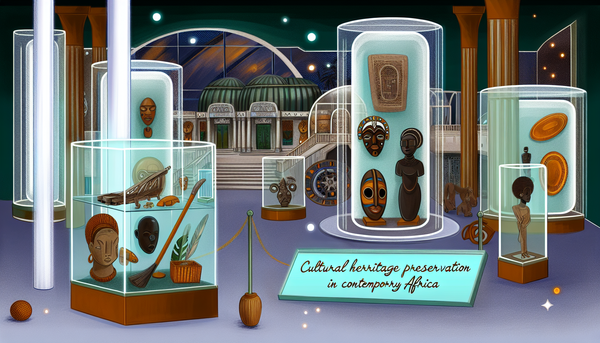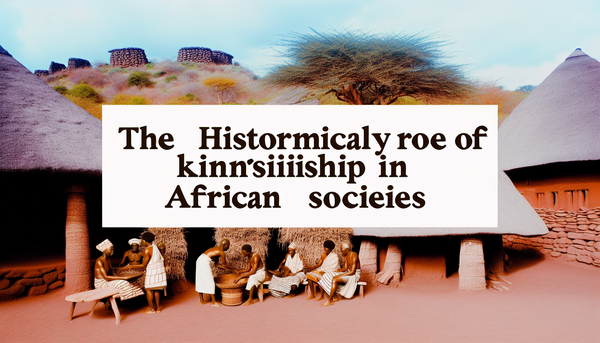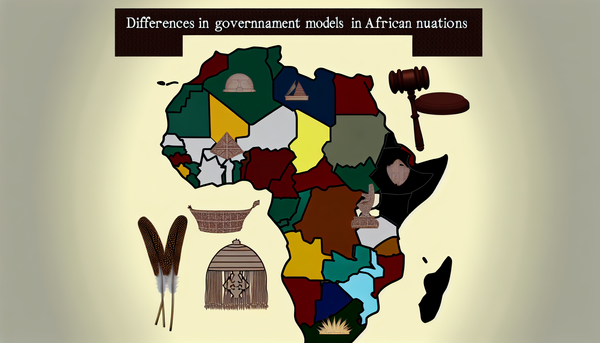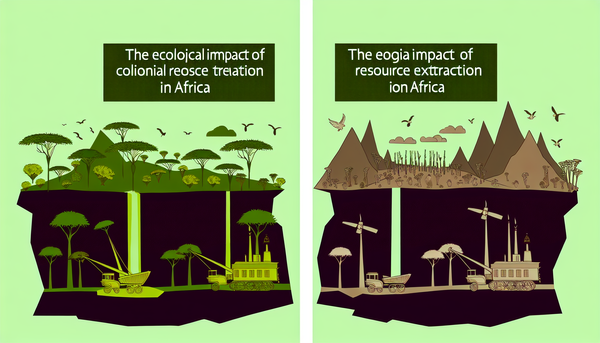The Influence of African Diaspora on Global Culture
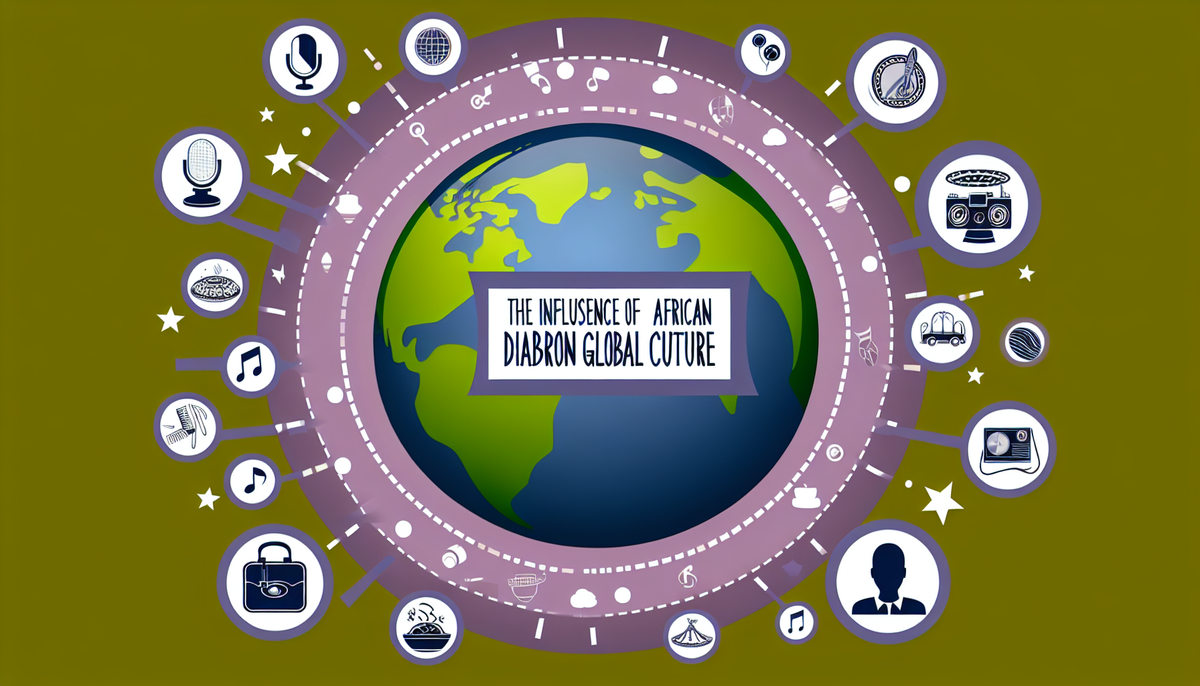
Impact of African Music and Rhythms Worldwide
African music and rhythms have profoundly influenced global musical landscapes across various genres. The rich diversity of African musical traditions, characterized by complex rhythms, vibrant melodies, and the use of various instruments, has shaped contemporary music in ways that are both innovative and transformative. Genres such as jazz, blues, and rock have roots in African musical traditions, with enslaved Africans bringing their cultural heritage to the Americas, where they adapted their music to new contexts.
Moreover, rhythmic patterns, such as polyrhythms, are foundational to many modern genres, including hip-hop, electronic, and pop music. The call-and-response format prevalent in African music has also found its way into global music, creating dynamic interactions in live performances.
Collaborations between African artists and musicians worldwide further blur the lines between genres, leading to the emergence of new styles like Afrobeat and Afrofusion. Festivals celebrating African music, such as the Gnaoua World Music Festival in Morocco, attract international audiences and showcase the continent's rich musical heritage.
Ultimately, the impact of African music is a testament to its ability to resonate across cultures, fostering unity and appreciation for diversity in global music.
African Culinary Traditions and Their Global Adoption
African culinary traditions are a vibrant tapestry that reflect the continent's diverse cultures, climates, and histories. With over 54 countries, each region boasts its own unique ingredients, cooking techniques, and flavor profiles. Staples such as millet, sorghum, or cassava, alongside indigenous spices and herbs, create dishes that are not only nourishing but also steeped in cultural significance.
As the African diaspora spread across the globe, so too did its culinary practices. African cuisine has started to gain popularity in various parts of the world, influencing local dishes and dining experiences. For instance, the use of spices such as berbere and harissa has garnered attention in international kitchens, while dishes like jollof rice and injera are finding a beloved place on restaurant menus outside of Africa.
Food festivals and pop-up restaurants dedicated to African cuisine are sprouting up in major cities, showcasing traditional recipes alongside modern twists. Moreover, the rise of social media platforms has allowed chefs and home cooks to share their heritage dishes, further promoting African culinary diversity.
Ultimately, the global adoption of African culinary traditions not only enriches the world’s food landscape but also fosters deeper cultural understanding and appreciation.
Role of African Art in Shaping Contemporary Aesthetics
African art has played a significant role in shaping contemporary aesthetics, influencing a wide range of disciplines including visual arts, fashion, architecture, and design. The vibrant colors, intricate patterns, and symbolic meanings found in traditional African artworks have inspired countless artists and designers across the globe. From the bold textile designs of West Africa to the striking sculptures of the Congo, these elements have become integral to the visual language of modern art.
The world of contemporary art has seen a resurgence of interest in African artistic practices, as artists from the continent and its diaspora explore themes of identity, culture, and history. Exhibitions featuring African artists, such as the Venice Biennale and documenta, have showcased innovative works that challenge traditional narratives and offer fresh perspectives. The incorporation of traditional techniques, such as beadwork and wood carving, into contemporary forms emphasizes the continuity and evolution of African art.
Additionally, the influence of African aesthetics is evident in the fields of design and fashion, where patterns and motifs are celebrated and adapted by designers worldwide. This cross-pollination between cultures fosters a greater understanding and appreciation for Africa's rich artistic heritage, ultimately enriching global visual culture.
Innovations in Fashion Inspired by African Diaspora
The fashion industry has seen a vibrant infusion of creativity and culture inspired by the African diaspora, leading to innovations that celebrate and reinterpret African heritage. Designers of African descent, such as Ozwald Boateng, Duro Olowu, and Stella Jean, have seamlessly woven traditional African textiles and patterns into contemporary styles, bringing global attention to the richness of African fashion.
Textiles like kente, mud cloth, and Ankara have become staples in high fashion, used not just in traditional garments but also in modern silhouettes such as structured blazers and flowing dresses. The unique prints and colors reflect cultural stories and identities, allowing wearers to express a deep connection to their roots.
Furthermore, the rise of streetwear has given African brands a platform to push boundaries and assert their presence in a global marketplace. Collaborations between Western brands and African artists are not only creating innovative fashion pieces but also promoting sustainability through the use of ethical practices and local craftsmanship.
Social media platforms play a crucial role in this fashion revolution, allowing designers to showcase their work and connect with a broader audience. Ultimately, innovations in fashion inspired by the African diaspora not only enrich the industry but also foster cultural pride and global representation.
Expressions of African Spirituality and Religion Globally
African spirituality and religion have transcended geographical boundaries, influencing global spiritual practices and fostering cross-cultural understanding. The rich tapestry of beliefs, rituals, and traditions originating from various African cultures has found resonance across the world, notably through the African diaspora, particularly during the transatlantic slave trade.
Traditional African religions often emphasize the interconnectedness of the spiritual and physical realms, with ancestors playing a vital role in daily life. This reverence for ancestors has been woven into practices such as Vodou in Haiti and Candomblé in Brazil, where African deities are honored and venerated. These spiritual structures promote community cohesion and cultural identity, creating vibrant expressions of faith that adapt to new environments while retaining African core values.
Moreover, contemporary movements such as African spiritualism and African-centered religions are emerging, revitalizing interest in ancestral practices and philosophy. These expressions encourage global communities to explore alternative spiritual paths rooted in nature, community, and the ancestral connection.
As African spirituality gains recognition in mainstream discourse, it challenges stereotypes and fosters appreciation for the continent's diverse belief systems, enriching the global spiritual landscape and encouraging a more inclusive approach to faith and practice.
African Literature and Storytelling Influencing Global Narratives
African literature and storytelling have significantly impacted global narratives, offering rich insights into the continent's diverse cultures, histories, and perspectives. With literary giants like Chinua Achebe, Chimamanda Ngozi Adichie, and Wole Soyinka, African authors have explored themes of identity, colonialism, and resilience, reshaping the way stories are told and received worldwide.
Oral traditions, an essential aspect of African storytelling, have also played a critical role in preserving history and cultural heritage. The art of storytelling, passed down through generations, captivates audiences with its lyrical rhythms and moral lessons. This tradition informs contemporary literature, where narrative techniques echo oral storytelling, enriching character development and plot structures.
Moreover, the global popularity of African literature has fostered a deeper understanding of socio-political issues, encouraging readers to engage with African experiences. Platforms like the African Book Festival and the emergence of new literary voices underscore the significance of African narratives in a global context.
As African literature continues to gain recognition, it challenges stereotypes and broadens the literary canon. By embracing the complexity of African stories, authors contribute to a more inclusive dialogue, fostering empathy and connection among diverse audiences around the world.
Contribution of African Diaspora to Global Political Movements
The African diaspora has made significant contributions to global political movements, advocating for social justice, civil rights, and decolonization across various contexts. The legacy of figures like W.E.B. Du Bois, Ida B. Wells, and Marcus Garvey has inspired generations to challenge systemic inequality and champion the rights of marginalized communities.
In the 20th century, the Pan-African movement emerged as a unifying force, connecting individuals across continents to combat colonialism and racism. Activists organized conferences and created networks that transcended national borders, fostering solidarity and collaboration among Africans and those of African descent worldwide. The Civil Rights Movement in the United States was heavily influenced by African leaders and intellectuals, who sought to dismantle oppressive structures and promote equal rights.
Moreover, contemporary movements such as Black Lives Matter reflect the enduring impact of the African diaspora in advocating for racial justice and police reform globally. By utilizing social media and grassroots organizing, diaspora members amplify their voices, drawing attention to systemic injustices that resonate with people worldwide.
The contributions of the African diaspora to global political movements underscore their pivotal role in shaping a more equitable world, serving as a reminder of the interconnectedness of struggles for justice and liberation.
